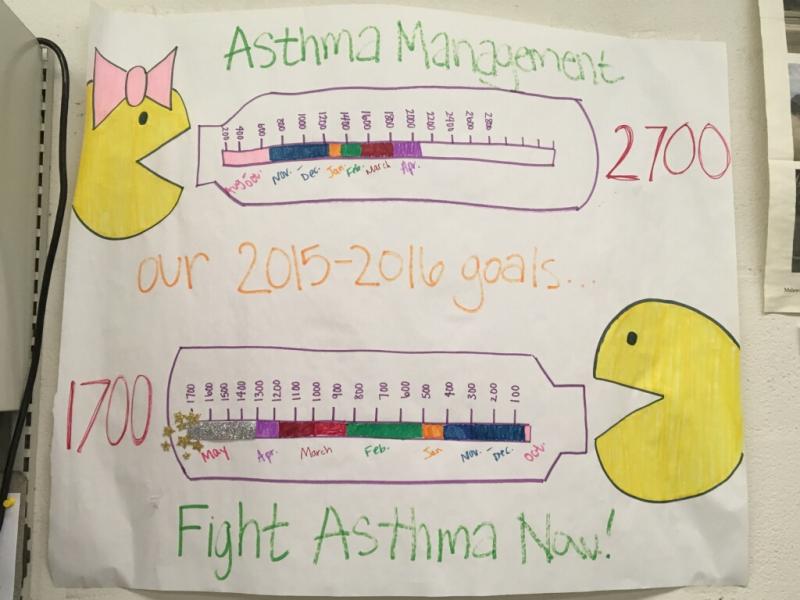The Answer is Yes

A couple weeks ago, a friend asked me if they should complete a service term with the National Health Corps. I could have said yes. Then, I could have gone on to explain the different ways in which they would gain invaluable public health experience, grow as an individual, and so forth. But that would've been the easy answer. After a year of service, I have come to expect the unexpected. Reflecting back, I can recall many celebrations of success matched by equal moments of defeat. Overall, this year has had its mix of ups and downs.
Looking at our Corps, it's evident that my fellow members have all joined for a variety of reasons. Whether it's to develop professional skills applicable to future career pursuits or simply for the passion for service, we have all dedicated a year to bettering our Chicago community.
As an asthma educator with the Respiratory Health Association (RHA), I've been lucky enough to have taught asthma management classes to students, parents, and staff all across Chicago. Having the opportunity to teach in the Chicago Public School and South Cook school systems has led me to become invested in the school community. Teaching in both North and South Chicago has revealed to me numerous disparities between the two regions. Learning outcomes varied greatly as I witnessed certain schools were provided with the finest technology, while others were scrambling to simply find space to house our three-day asthma class. But the differences didn't end there, as classroom management was significantly more difficult in one territory as opposed to the other. These various aspects were decisive in how smooth our classes ran. Soon after, I began to almost prefer teaching in certain districts, simply because it was easier and more accommodating for me. However, I was only at the schools for three or four days. I could only imagine the mindsets of the teachers and faculty who work there day in and day out. Now, this preference did not affect my scheduling of classes across North and South sides. Yet, it did reveal a plethora of problems surrounding school-based health education in Chicago, and I came to conclude that this vicious cycle was perhaps the reason these disparities continued.
Furthermore, I did not expect to experience so much difficulty in scheduling programs with all the Chicago schools. From my perspective, my fellow educators and I were providing a free service to the schools. However, it was never as simple as that. Testing schedules, limited space and overworked nurses were only a few of the barriers I came across. As much as I would have loved to educate as many schools as I could, my perspective broadened as I saw the struggles nurses and counselors experience in trying to set up programs for their schools. As such, I am thankful for the faculty who were kind and determined enough to advocate and push for our classes.
Looking back to the beginning of the year, I was trained in our asthma curriculum and was expected to deliver these programs to asthmatic students across Chicago. And it was incredibly rewarding to receive thanks from the students I taught and hear appreciation for the free spacers we provided. I really began to see the impact of our lessons, and hopefully my fellow educators and I helped RHA further its mission of lowering the rates of uncontrolled asthma. However, I did not expect for us to surpass our goal of educating 1700 students to the current 1830. These were the successes I could revel in. I also did not expect to become so invested in my students and their learning environments. This was an unexpected defeat as it saddens me that I'll be leaving this year, while their challenges persist.
So to future NHC members, I say yes, join the program! But don't simply join for personal growth. Rather, come with open minds and ready to enact change as I challenge you all to look past your host sites and perhaps at some of the larger health dilemmas facing the Chicago community.

This post was written by NHC Chicago member Ashley Joseph.
Ashley serves as an Asthma Educator at Respiratory Health Association.